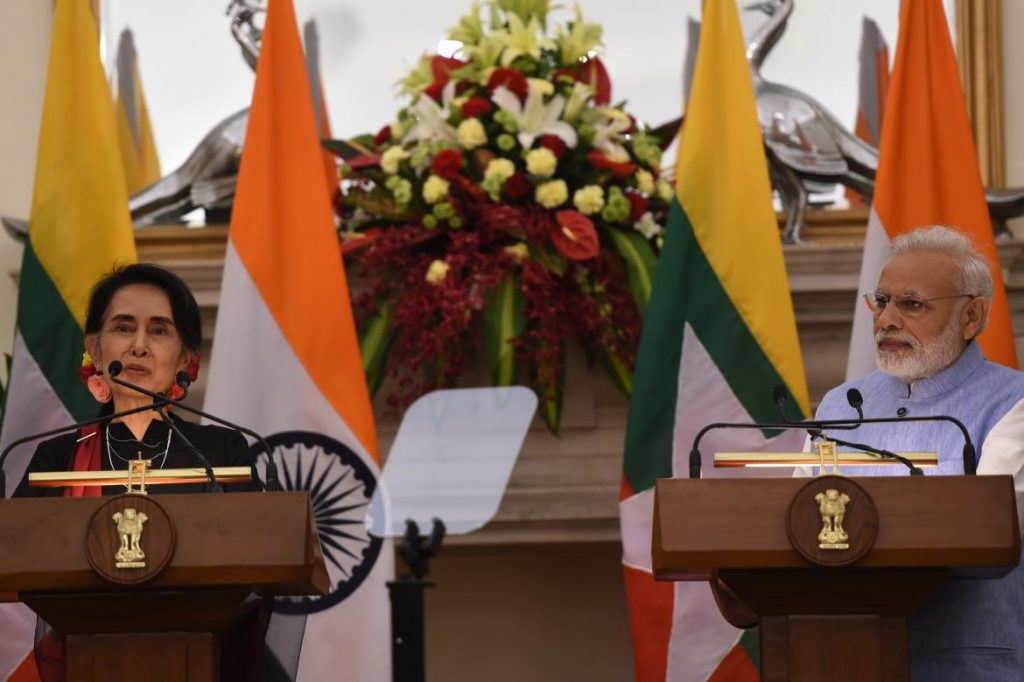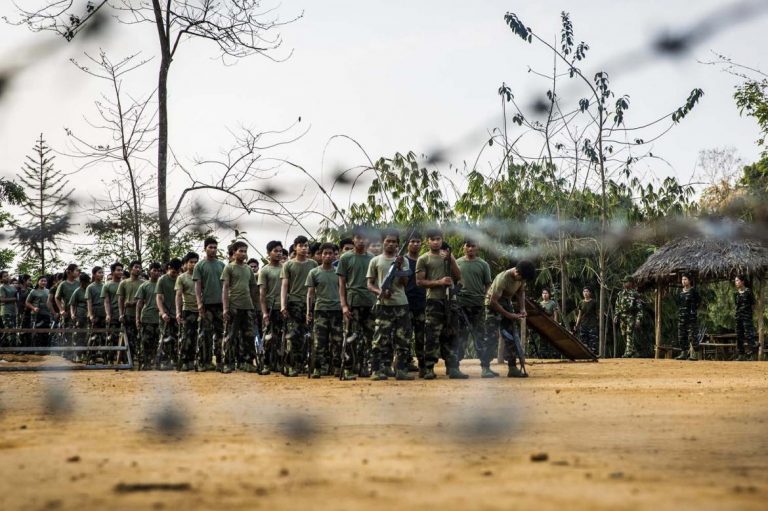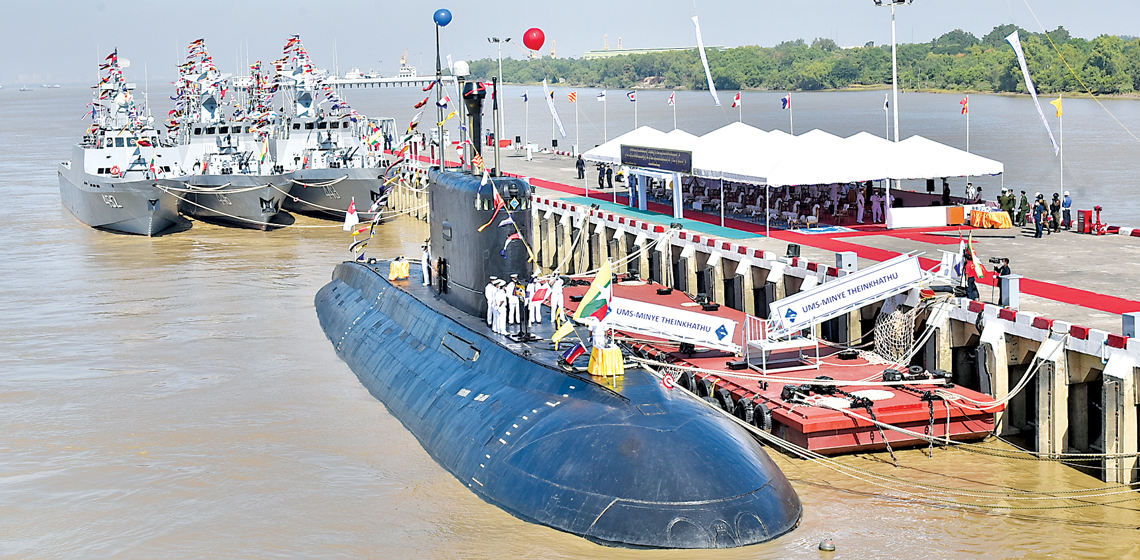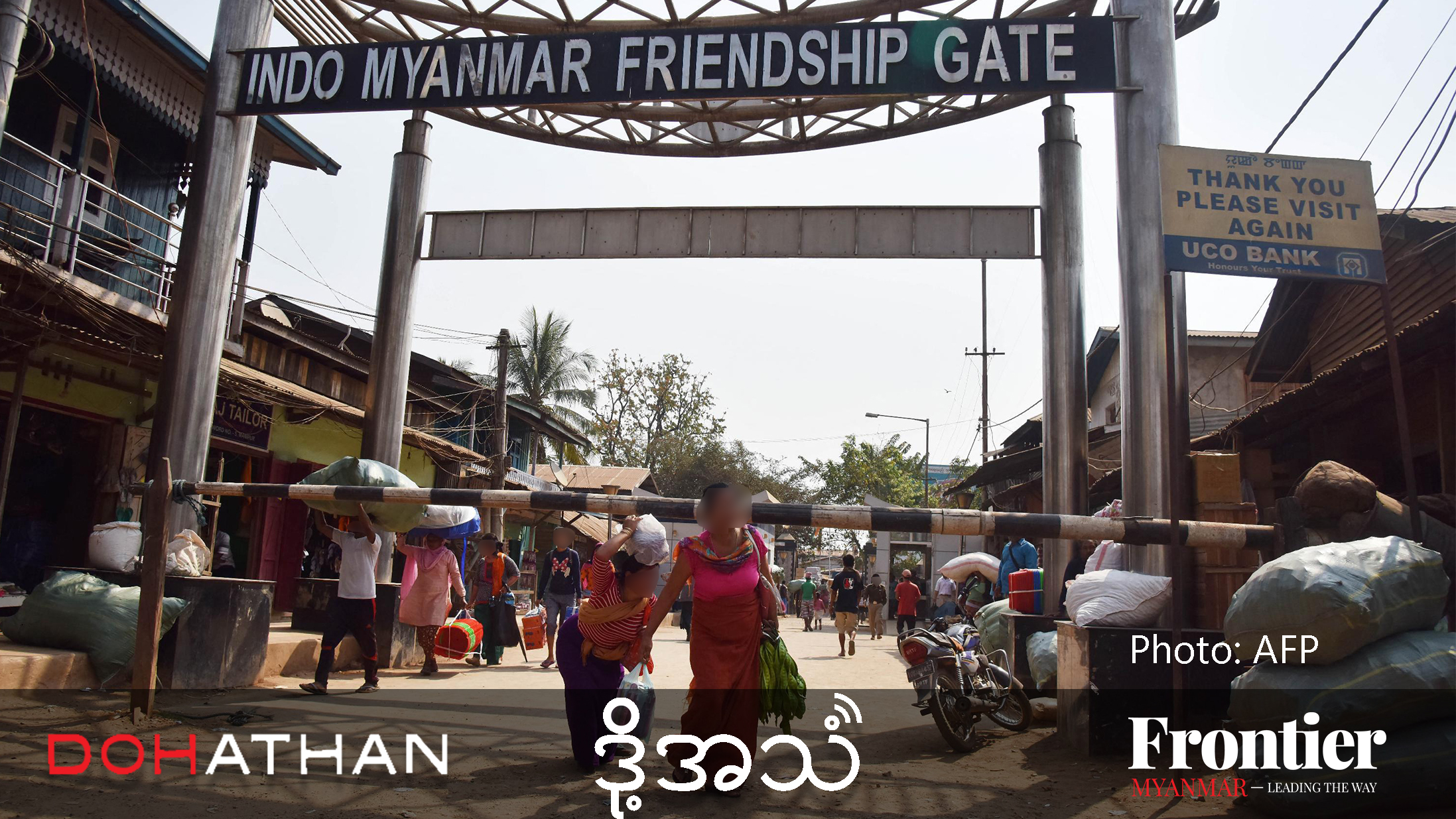State Counsellor Daw Aung San Suu Kyi has expressed gratitude to India for helping Myanmar to “make up for lost time”, Kyodo News reported.
“We have much to do. We are behind India…in both economic and political development,” Aung San Suu Kyi said at a joint news conference with Prime Minister Mr Narendra Modi in New Delhi on October 19.
“But we are confident that we will be able to make up for lost time with the support and understanding of our friends. This is why the capacity-building programs that India is envisaging for us will be of tremendous help,” she said at the end of a visit that began on October 15.
The State Counsellor was referring to nearly US$1.75 billion (about K2.26 trillion) in development assistance from India that Modi said was “centred on people” and would go towards capacity-buiilding, education, connectivity, infrastructure and healthcare.
“From the mega connectivity projects like Kaladan and trilateral highway, to projects in the fields of human resource development, healthcare, training and capacity building, we are sharing our resources and expertise with Myanmar,” he said.
Support more independent journalism like this. Sign up to be a Frontier member.
Modi said he had agreed with Aung San Suu Kyi “to enhance our engagement in several areas including agriculture, power, renewable energy and power sector”.
He said India had offered to scale up the power supply from Moreh in Manipur to Tamu in Sagaing Region, and would also partner in a pilot LED electrification project at a site to be chosen by the Myanmar government.
The State Counsellor said they also discussed bilateral cooperation in education as well as archeology, a reference to India’s help in restoring Myanmar’s ancient pagodas, including those at Bagan damaged by a recent earthquake.
She thanked India for helping Myanmar with capacity-building for its legislators, civil servants and police force, Kyodo News reported.
India’s assistance, she said, would help “move us forward from a position where we are almost behind all the other Southeast Asian countries to the position we used to hold at one time when we were the first country in Southeast Asia, the country ‘most likely to succeed,’ as we were then termed.”
Aung San Suu Kyi was referring to the period between independence in 1948 and the coup in 1962 that marked the start of decades of junta rule.
Calling India “the greatest democracy in the world,” the State Counsellor said she admired it for being able to maintain its democratic system despite facing many challenges since independence in 1947.
“We hope that the time has come for us to be able to say we have made it, we have made the breakthrough, we are now firmly set on the path to union that will be a union for as long as the world endures, and in this too we look to India with its experience of federalism to teach us how we may best bring our all peoples into the process,” she said.







